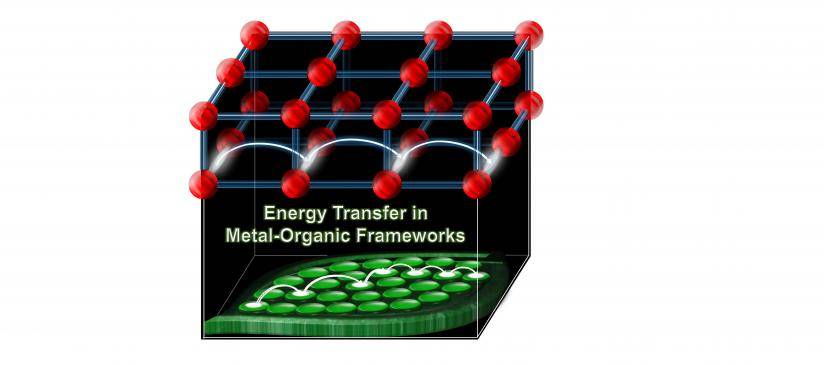As a result, energy transfer in a predesigned pathway is an emerging field of interest for a broad scientific community, which required for the development of the next generation of solar cells, photocatalysts, sensors, light-emitting diodes, and switches. The major goal of the project performed in the Shustova group, which is supported by the prestigious NSF CAREER award, is the preparation of crystalline hybrid materials with a predesigned pathway for energy transfer that significantly enhance energy utilization efficiency and, thereby, drastically modify the existing energy and material landscape. Metal-organic crystalline materials produced in the Shustova lab could enable us to reach these goals and, thereby, affect the state of future energy generation and storage. The advantages of utilizing the proposed materials for energy transfer studies are as follows: (1) scaffold modularity, which allows tuning of photophysical properties of the material; (2) crystallinity, which provides a platform for systematic studies of energy transfer mechanisms compared to amorphous polymers; and (3) porosity, in combination with structural modularity, which allows studying of different energy transfer pathways involving organic linkers, metal nodes, and guest molecules. Moreover, the self-assembly approach proposed for material synthesis allows replication of the hierarchical organization of hundreds of chromophores observed in the natural photosystem. The Shustova’s research program also integrates the development of the Carolinian Women in Science (Wi-Sci) Supportive Network, which addresses the workforce demand in science, technology, engineering, and mathematics (STEM). The Wi-Sci initiative integrates educational and research opportunities for female students in STEM disciplines by establishing intercollegiate scientific exchanges and collaborations, providing and promoting multidisciplinary research opportunities for female scientists in different research groups, and organizing educational workshops focused on attraction and retention of women in the STEM disciplines.
College of Arts and Sciences
- SC.edu
- Study
- Colleges and Schools
- College of Arts and Sciences
- About
- News
- 2017 News Archive
- Natalia Shustova receives prestigious NSF Career Award
Natalia Shustova receives prestigious NSF Career Award
One of the main challenges facing humanity in the 21st century is the supply of secure and sustainable energy, of which consumption will only continue to grow as the human population increases.
